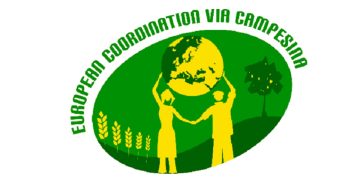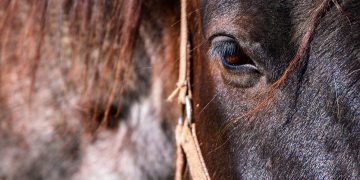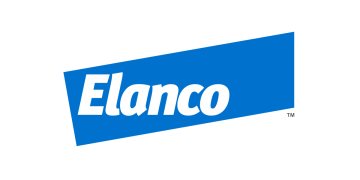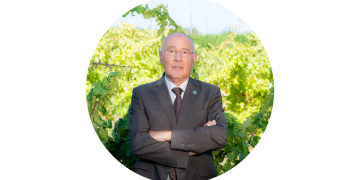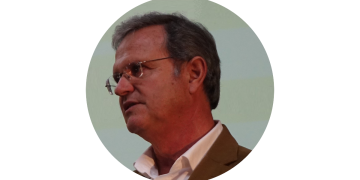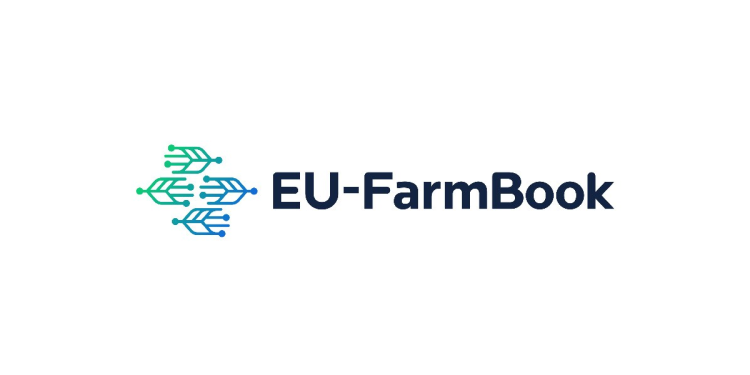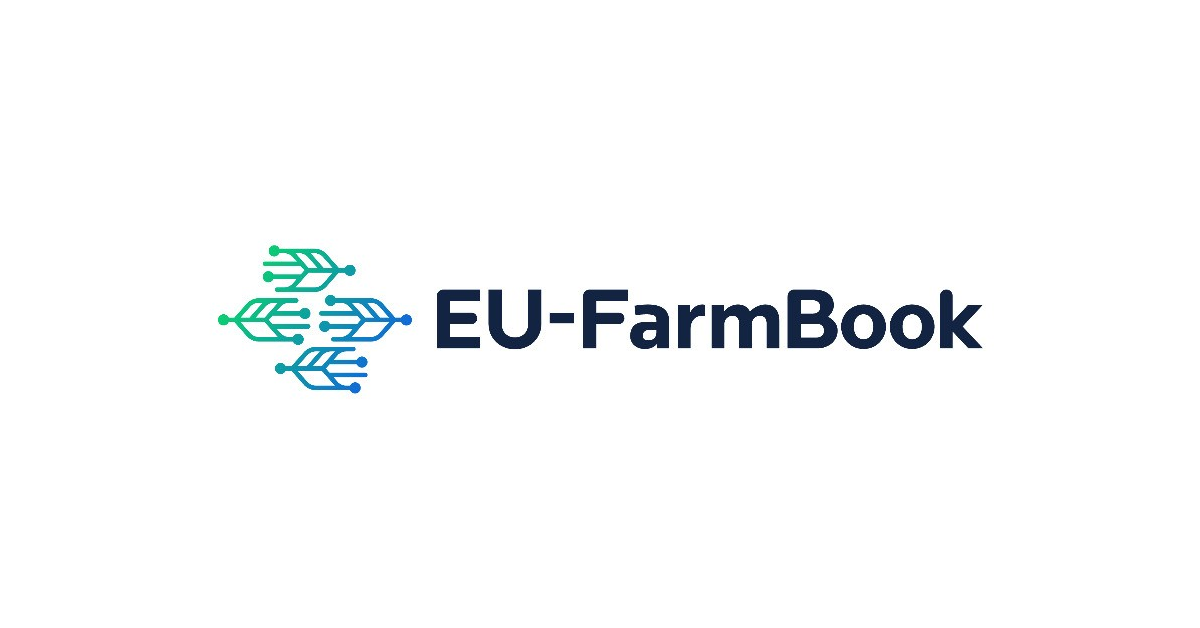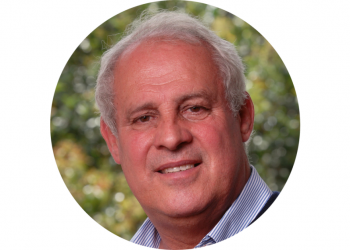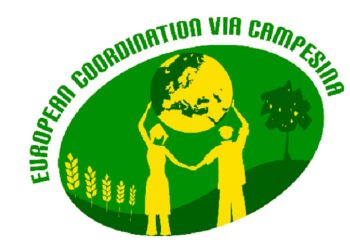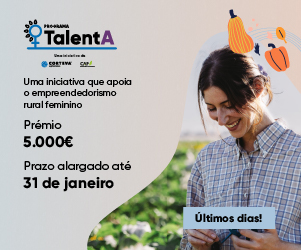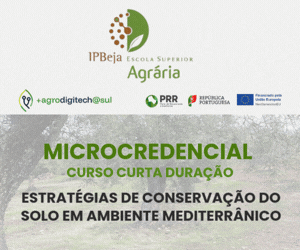University of Bonn, 22.09.25: Experts from science, research transfer and journalism discussed the transfer of innovation in agriculture at the lecture centre of Campus Poppelsdorf in Bonn. The panel event was accompanied by a presentation of spin-offs and innovative projects, including EU-FarmBook.
The event was organised by the EU-FarmBook project, the European Network of Agricultural Journalists ENAJ and the Faculty of Agricultural, Nutritional and Engineering Science AEl at the University of Bonn. Around 60 guests from science, business and journalism were welcomed by Professor Dr. Niklas Möhring, Vice Dean for Research and Career Development of the Faculty AEl of the University of Bonn, Prof. Dr. Pieter Spanoghe from the Department Plants and Crops of Ghent University and Yanne Boloh, Director of press agency Philéas Info, journalist and chairwoman of the European Network of Agricultural Journalists ENAJ.
The central question that the panelists explored under moderation of Prof. Dr. Katharina Seuser was: How can innovation be successfully transferred into agricultural practice? How can EU-FarmBook become a success?
Prof. Dr. Pieter Spanoghe, Professor of Ghent University and coordinator of EU-FarmBook underlined the importance of innovation transfer: “Across Europe, billions are invested in agricultural research. Without robust mechanisms to translate findings into practice, much of this knowledge remains locked in reports, inaccessible to those who could benefit. This disconnect threatens the very impact that research is meant to deliver.”
The EU FarmBook digital platform is set to become a central instrument for the transfer of innovation. The launch is planned for the end of the year, said Spanoghe. Project organisers from all over the EU are currently uploading practical information, which can be then accessed in all EU languages. Spanoghe said: „EU-FarmBook is more than a digital repository-it’s becoming the point of reference for farmers, foresters, and advisors seeking practical, research-based solutions. It’s a multilingual, open-access platform that bridges the gap between EU-funded research and those who need it most on the ground.”
Prof. Dr. Heiner Kuhlmann, spokesperson of the Cluster of Excellence PhenoRob and Head of the Geodesy Group at the Institute of Geodesy and Geoinformation IGG at the University of Bonn highlighted the importance of fundamental research as foundation for practical innovation. Innovation transfer faces many obstacles. One of them is the lack of resources. Regarding EU-FarmBook he said: “It’s not easy to make EU-FarmBook a success and I don’t have a simple solution. From my point of view a lot of personal engagement and contact are needed.”
Dr. Leonie Göbel, Consultant for EIP-Agri* and AKIS** at the German CAP Network DVS underlined the importance of the agricultural networks: “Today there are around 500 innovation projects in ElP-Agri in Germany and several thousands in the EU. The idea behind it: If we include farmers or foresters right from the beginning innovations are implemented and spread much faster.” Leonie Göbel is enthusiastic in bringing together the right projects and people. “In times of lacking resources, a strong network and space for exchange is more important than ever to create innovative, sustainable and resilient agricultural practices” she said. Leonie Göbel is convinced that EU-FarmBook can be successful but it needs “to speed up”. She therefore suggests to test the platform as soon as possible.
Peter Dissenbacher, Founder & CEO WeGrow Group, confirmed the importance of science based innovation. He is convinced that in agricultural research cutting edge knowledge is often generated but too often it remains within the academic walls. “To make a difference, we need systems that enable knowledge to move and to become prototypes, products, start-ups, and policies”, he said and appealed: “Research reaches its full potential only when it is brought into practice – and for that we need an ecosystem of innovation that build strong bridges between science, business and society. “EU-FarmBook will be successful if farmers can see at least one example where the information on the platform helped a farmer.”
Yanne Boloh, journalist and director of the French press agency Phileas Info represented the European Network of Agricultural Journalists ENAJ on the panel. She also gave insight into the innovation reporting in France. Innovations are regarded to be very important and therefore since 2018, the French Association of Agricultural Journalists AFJA has launched a call for articles and reports presenting forward-looking and innovative topics in the fields of agriculture, the environment, food, and rural life for the “Graine d’innovation” (Seed of Innovation) award. These innovations open opportunities, but they also raise questions. And that is where agricultural journalists come in – to connect, to translate, and to share these complex issues with clarity, fairness, and insight. Boloh sees great potential in the platform EU-FarmBook because it will give journalists good stories to write for farmers but it will not replace journalists.
Prof. Dr. Aneta Suchon, lawyer and professor at Adam Mickiewicz University in Poznan and editor of the agricultural weekly Tygodnik Pradnik Rolniczy (Agricultural Guide Weekly), which is currently the largest magazine for farmers in Poland, confirmed the importance of innovation for agriculture in Poland: “There are over a million farms in Poland and innovation is necessary for developing farms, greening agricultural activities and increasing farmer’s incomes.” The agricultural press plays an important role in providing up-to-date information and knowledge in areas such as law, economics, crop cultivation, and animal husbandry. It is an important contributor to the dissemination of information on innovation in farms and the resolution of farm management issues, she said. EU-FarmBook can be a success, but it needs more promotion towards the farmers.
Accompanying the panel discussion, 16 spin-offs and research projects presented themselves in a marketplace of ideas in the foyer of the lecture centre of Campus Poppelsdorf. The spin-offs of the University of Bonn were prominently represented with WeGrow and spin-offs from the Phenorob Cluster of Excellence. VisioChick, a current research project at the University, was presented. VisioChick is developing smart glasses that improve the understanding of animal welfare, focussing on visual aspects. Garrulus, a spinoff from Bonn-Rhein-Sieg University of Applied Sciences, presented a drone that can be used to reforest forests. The following projects, start-ups and spin-offs presented themselves: EU-FarmBook, PhenoRob, Pheno-Inspect, DynamoBot, VisioChick, AutoDry & Co, Bio-Innovation Park, Greens, WeGrow, A.l.Land, Garrulus, Agvolution, Farminsect, NUNOS, Seedalive und Cacta.eco.
*EIP-Agri: European Innovation Partnership for agricultural productivity and sustainability
**AKIS: Agricultural Knowledge and Innovation System is a concept by the EU to increase knowledge exchange. Everyone who uses or produces knowledge is part of AKIS. AKIS helps to improve knowledge flows and innovation transfer.
Fonte: EU-Farmbook


